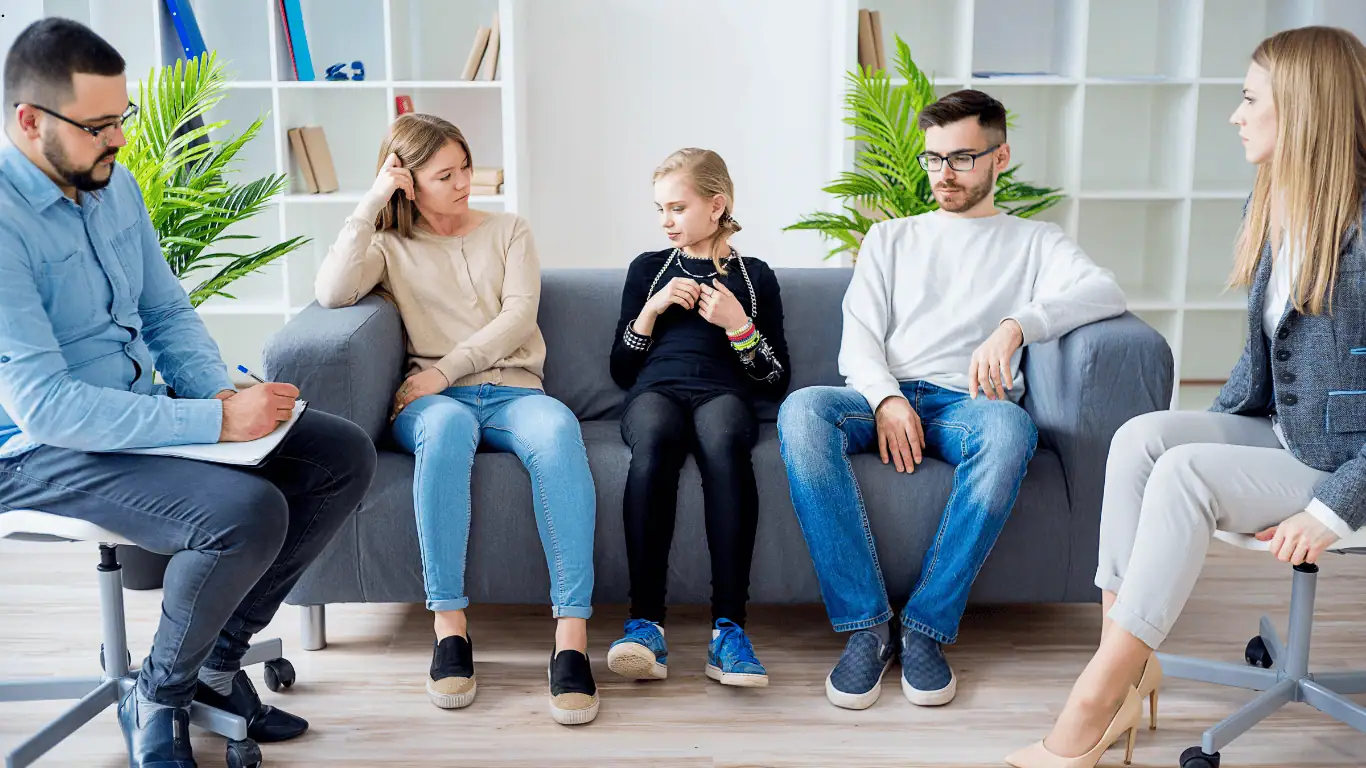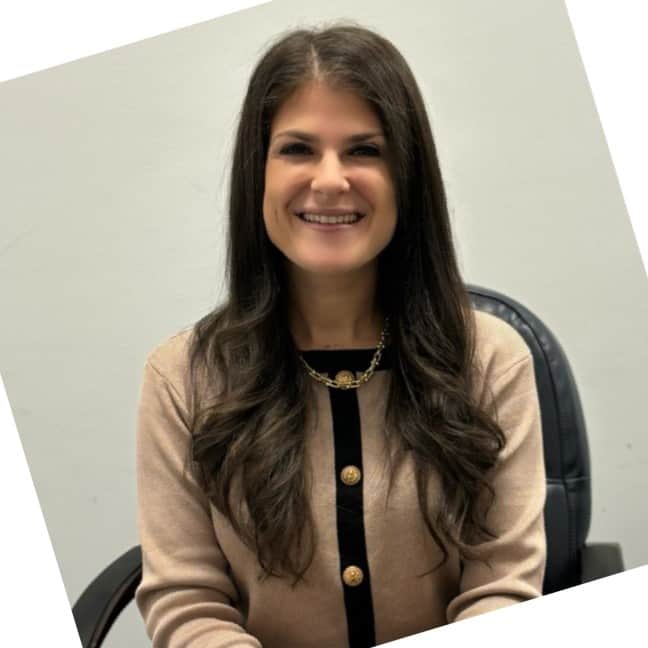Addiction doesn’t just impact the individual struggling with substance use—it affects the entire family system. As substance use disrupts daily life, family members often experience strained relationships, broken trust, and cycles of conflict that make communication difficult. These challenges can lead to unhealthy patterns, including enabling behaviors, codependency, and emotional withdrawal. Without intervention, these dynamics can continue long after a loved one enters recovery.
This is where family therapy for addiction plays a vital role. By addressing the ways addiction influences the family system, therapy helps loved ones rebuild trust, improve communication, and establish healthier boundaries. Approaches such as functional family therapy and brief strategic family therapy provide structured strategies to navigate these challenges, ensuring that the entire family heals together.
At Right Path Rehab, we recognize that addiction recovery is most successful when family members are involved in the healing process. Family therapy not only supports the individual in recovery but also strengthens relationships, helping families move forward with understanding, resilience, and long-term support.
Understanding Family Therapy for Addiction Recovery
Family therapy is a structured, evidence-based approach that engages other family members in the treatment process to promote long-term recovery. Rather than focusing solely on the individual struggling with substance abuse, this therapeutic model examines how family relationships, communication patterns, and past traumas contribute to or are impacted by addiction.
According to the Mental Health Services Administration, addiction often coexists with mental health disorders, creating additional challenges for family members within the family system. When substance abuse enters the home, it can lead to codependency, enabling behaviors, blame, and emotional distress—all of which can make recovery more difficult. Family therapy provides a structured environment where each of the family members can recognize their role in these patterns, develop healthier ways of interacting, and work toward rebuilding trust.
By integrating mental health services into the treatment process, family therapy ensures that both the individual in recovery and their family members receive the support they need to heal, communicate more effectively, and foster a healthier home environment.

The Role of Functional Family Therapy in Healing
A strong support system within the family unit is essential for achieving and maintaining long-term sobriety. When a loved one is struggling with substance use disorders, the entire family is affected, making it crucial to address both individual and relational challenges. Family counseling plays a key role in the substance abuse treatment process by fostering open communication, rebuilding trust, and teaching healthy coping strategies.
Incorporating family counseling into addiction treatment helps families work through the emotional and psychological impact of drug addiction, ensuring that both the individual in recovery and their loved ones have the tools to heal together. Through structured and guided discussions, family therapy creates a supportive environment where lasting change can take place.
Here’s how family therapy contributes to recovery and strengthens the family unit:
1. Rebuilding Trust
Addiction treatment families often experience deep fractures in trust due to the effects of substance use. Rebuilding that trust is a gradual process that requires commitment, open communication, and structured support. Family therapy programs provide a safe and guided environment where family members can work toward healing through honest conversations, accountability, and consistent efforts from all parties involved.
A family therapist helps guide these discussions using evidence-based family therapy techniques that encourage positive behaviors and foster understanding. Whether in residential or outpatient treatment, these therapeutic strategies help families navigate difficult emotions, address past hurts, and establish a foundation for healthier relationships moving forward.
Rebuilding trust is not about immediate forgiveness—it’s about creating space for addiction treatment families to reconnect, set boundaries, and develop healthier communication patterns. With the right support, families can learn to move forward together with empathy, patience, and resilience.
2. Improving Communication Skills
Many families navigating addiction experience unspoken resentments, misunderstandings, and defensive reactions, which can create a strained family environment. This breakdown in communication often leads to conflict, emotional distance, and difficulty in offering meaningful support.
When families attend family therapy, they gain essential tools to rebuild these connections. Family therapy focuses on improving family interactions by teaching active listening, non-confrontational expression of emotions, and healthy boundary-setting without hostility. By fostering open and respectful communication, family therapy helps families express their concerns in a way that promotes healing rather than conflict.
Through family involvement in family-based treatment, loved ones can develop stronger, more supportive relationships while learning how to navigate recovery as a team. When the family environment is rooted in understanding and healthy dialogue, individuals in recovery have a greater chance of achieving long-term success.
3. Breaking Codependency and Enabling Patterns
When addiction affects a household, it often disrupts family functioning, leading to codependent tendencies and enabling behaviors that can unintentionally prolong substance use. Extended family members and close loved ones may find themselves making excuses for addictive behaviors, covering up consequences, or neglecting their own well-being in an effort to help. These patterns, while often rooted in love and concern, can prevent true recovery from taking place.
Through behavioral family therapy and structured family therapy, loved ones learn how to shift these harmful dynamics into healthier support mechanisms. Teaching family members how to set boundaries, encourage accountability, and prioritize their own self-care strengthens the recovery process for everyone involved. When combined with individual therapy, this approach leads to better treatment outcomes by fostering a balanced, supportive environment where both the person in recovery and their family can heal together.
4. Creating a Safe, Judgment-Free Space
Addiction is often fueled by shame, guilt, and fear, which can create emotional distance and tension in family life. When these feelings go unaddressed, they can negatively impact how family members interact, leading to resentment, miscommunication, and cycles of conflict.
Family counseling approaches provide a safe and supportive space where families can openly express emotions, discuss past pain, and work toward collective healing without judgment or blame. By developing conflict resolution skills and learning healthy coping skills, families can break free from negative patterns and create a more supportive environment for the person struggling with addiction.
Through structured family therapy, loved ones can rebuild trust, strengthen relationships, and develop the tools needed to navigate recovery together with understanding and compassion.
5. Setting Healthy Boundaries
Establishing clear boundaries is essential for both the person in recovery and their loved ones. Without healthy limits, unhealthy behaviors such as enabling, codependency, or emotional overextension can make treating addiction more difficult. Family therapy works by helping individuals and their families define mutually respectful boundaries, ensuring that support is given in a way that promotes accountability rather than dependency.
For families navigating alcohol addiction or substance use recovery, learning when to offer help, when to step back, and how to encourage responsibility without fostering resentment is crucial. Additionally, for parents, parenting skills are reinforced in family therapy to create a stable, structured environment for children who may be impacted by addiction in the household.
By setting clear expectations and limits, family therapy works to create a balanced and supportive dynamic where both the person in recovery and their loved ones can heal and grow together.

Types of Family Therapy Approaches in Addiction Treatment
Different family support approaches help address the complex web of family dynamics impacted by substance misuse and alcohol addiction. When families are involved in disorder treatment, they gain the tools necessary to rebuild trust, improve communication, and create a more supportive environment for long-term recovery. Here are some of the most effective therapeutic techniques for families navigating addiction recovery:
Cognitive-Behavioral Family Therapy (CBFT):
Cognitive Behavioral Family Therapy identifies and restructures negative thought and behavior patterns within the family, helping to change unhealthy dynamics that may contribute to substance misuse.
Multidimensional Family Therapy (MDFT):
A specialized approach often used for adolescents struggling with alcohol addiction or drug use. This method addresses risk factors, improves family communication, and strengthens bonds to create a stable support system.
Family Systems Therapy:
Examines how different family roles and interactions influence addiction and recovery. By identifying dysfunctional patterns, this approach helps families establish healthier ways to interact and support one another.
Behavioral Couples Therapy (BCT):
Designed for couples dealing with substance misuse, this therapy helps improve relationship dynamics, build trust, and create a supportive environment for both partners during disorder treatment.
For families looking to seek treatment together, these therapeutic approaches can be transformative, promoting healing for both the individual in recovery and their loved ones.
How Family Members Can Support a Loved One in Recovery
Beyond therapy sessions, many family members play a crucial role in their loved one’s recovery. A strong support system can significantly impact the success of a treatment program, helping individuals stay motivated and engaged in their healing journey. Here’s how families can foster a supportive and healing environment:
Educate Yourself About Drug Abuse:
Understanding drug abuse and addiction as a disease rather than a moral failing helps reduce stigma, increase empathy, and provide more effective support. Many treatment centers offer educational resources for families.
Encourage Open and Honest Communication:
Creating a safe space for discussions without fear of judgment or retaliation can help rebuild trust and strengthen relationships during recovery.
Attend Support Groups:
Many family members benefit from peer support through groups like Al-Anon, Nar-Anon, and SMART Recovery Family & Friends, which provide guidance and encouragement.
Practice Self-Care:
Family involvement in recovery can be emotionally draining. Taking care of your own mental and emotional well-being is just as important as supporting a loved one.
Utilize Behavioral Contracting:
Some treatment centers and therapists use behavioral contracting, a structured approach where families and individuals in recovery set clear expectations, consequences, and rewards to promote accountability.
Celebrate Milestones, Not Just Sobriety:
Recovery isn’t solely about abstaining from substance use—it’s about personal growth. Acknowledge progress in mental health, relationships, and emotional well-being to encourage long-term success.
By actively engaging in a loved one’s treatment program while maintaining their own well-being, families can create a healthier, more stable environment that supports lasting recovery.

Healing the Family System is a Journey
Recovery is not a solo journey. The support of family members can make a significant difference in the long-term success of a loved one’s healing process. Therapy for addiction isn’t just about treating the individual—it’s about addressing the entire scope of family member dynamics to improve family member functioning and create a more supportive environment.
At Right Path Rehab, we use approaches like solution-focused therapy for family members and group therapy to help families rebuild relationships, develop healthier interaction patterns, and navigate the challenges of addiction recovery together. Through positive reinforcement, open communication, and structured guidance, families can heal as a unit, fostering trust and resilience along the way.
If your family is struggling with the impact of addiction, know that help is available, and healing is possible. Contact Right Path Rehab today to learn how family therapy for addiction can be a transformative step toward a healthier, more connected future.
Works Cited
Substance Abuse and Mental Health Services Administration. Substance Use Disorder Treatment and Family Therapy. Treatment Improvement Protocol (TIP) Series 39, PEP20-02-02-012, U.S. Department of Health and Human Services, 2020, https://library.samhsa.gov/sites/default/files/tip-39-treatment-family-therapy-pep20-02-02-012.pdf.

